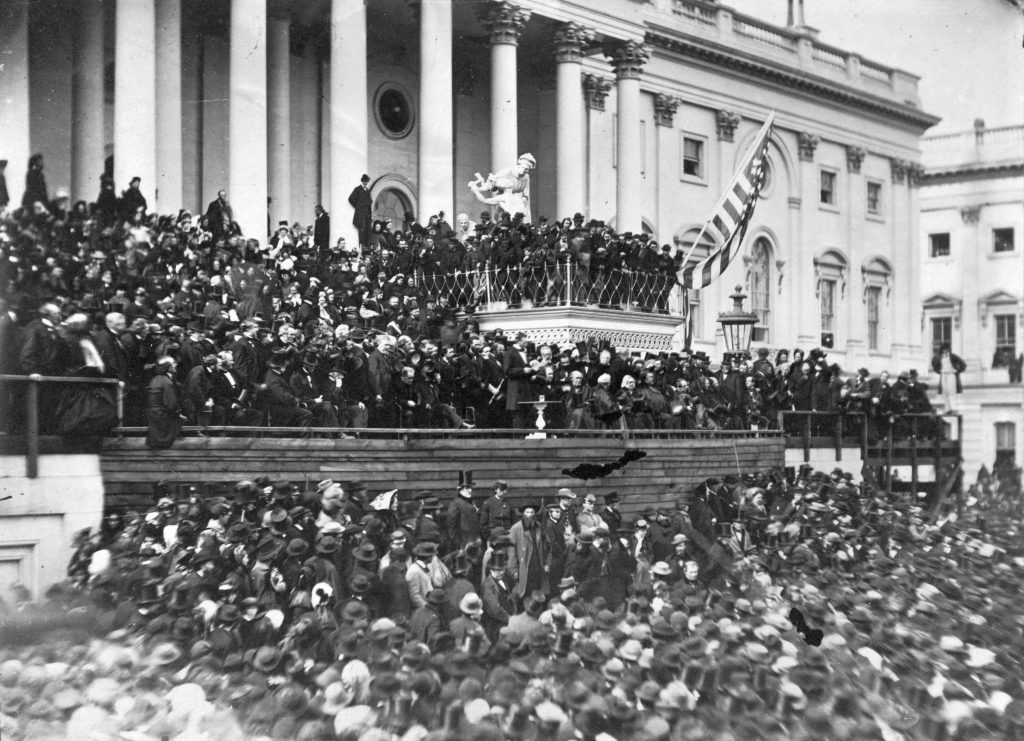Week 10
Bruce Thompson on the Second Inaugural:
Lincoln delivered his Second Inaugural Address on Saturday, March 4, 1865, about a month short of Lee's surrender to Grant at Appomattox. Weeks of blustery storms had left Pennsylvania Avenue thick with mud, but the sun appeared just as Lincoln stood up to speak, under the recently completed Capitol dome. This time there were many hundreds of free black people, including the great abolitionist leader Frederick Douglass, as well as black soldiers in uniform, in the audience. The address, at four paragraphs, 26 sentences, 703 words, is longer than the Gettysburg Address, but shorter than any other inaugural address, except for the first one, by George Washington.
Lincoln:
"Fellow-Countrymen:
At this second appearing to take the oath of the Presidential office there is less occasion for an extended address than there was at the first. Then a statement somewhat in detail of a course to be pursued seemed fitting and proper. Now, at the expiration of four years, during which public declarations have been constantly called forth on every point and phase of the great contest which still absorbs the attention and engrosses the energies of the nation, little that is new could be presented. The progress of our arms, upon which all else chiefly depends, is as well known to the public as to myself, and it is, I trust, reasonably satisfactory and encouraging to all. With high hope for the future, no prediction in regard to it is ventured."
Surely this is a modest opening: no biblical "four score and seven years ago," but rather "this second appearing." Not "my second appearing," for Lincoln once again has chosen to suppress the first person singular pronoun: there is one use of "myself" and one of "I" in this paragraph ("I trust"), but everywhere else in the speech he uses the inclusive plural. He begins, modestly, by telling us what he will not do in the speech: he will not render an account of the North's great victories on the battlefields ("little that is new could be presented"). Nor will he celebrate his own achievements, or even predict the final outcome of the war ("no prediction in regard to it is ventured"). Notice how he shifts to the passive voice to avoid the first person singular pronoun.

